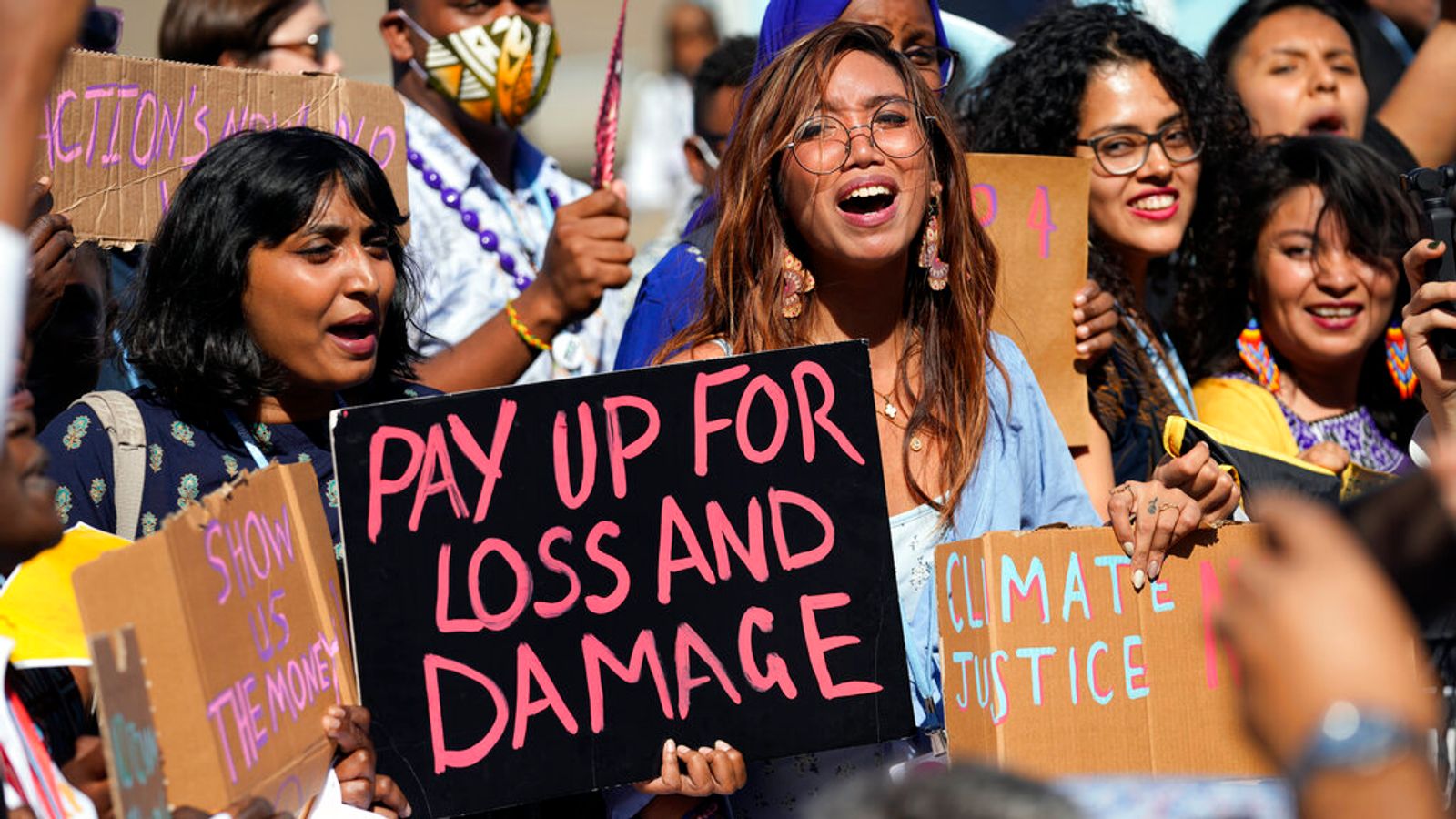Countries celebrate first-ever fund for climate damages at COP27

For the first time in history countries have agreed on a dedicated fund to pay out for extreme climate damages in vulnerable regions, finally bringing to a close a tumultuous two weeks at the COP27 climate summit.
Many questions about the hard-won fund remain, including who pays in, who is eligible for the money and who administers it.
But the United Nations summit has brought what was a taboo issue into the mainstream, with even the US, a longtime blocker, accepting the need for such a pot of money.
It was regarded as a breakthrough that funding for “loss and damage,” as it is known, even made it on to the official agenda for the talks in Sharm el-Sheikh.
Disasters such as extreme flooding, drought and sea level rise have been supercharged by a hotter climate, driven primarily by pollution from developing countries. The group of 20 major economies is responsible for 75% of global emissions.
Laurence Tubiana, architect of the Paris Agreement, said COP27 won a “significant breakthrough for the most vulnerable countries”.
In spite of the outstanding details “the principle is in place and that is a significant mindset shift”, she added.
Vanessa Nakate, an activist from Uganda, said losses and damage from climate breakdown “in vulnerable countries is now unignorable, but some developed countries here in Egypt have decided to ignore our suffering”.
Towards the end of the second week, delegates wondered whether a deal would materialise, with host nation Egypt leaving it until Friday to produce the first draft, hours before the summit was due to close.
Advertisement
The COP process relies on consensus so all of the almost 200 countries present have to agree on the deal for it to go through.
A series of frantic negotiations followed as countries sought to tip the balance of the text in favour of their respective aims.
Egypt faced criticism for restricting protests, poor organisation and its ongoing imprisonment of British-Egyptian activist Alaa Abd El-Fattah, among many other government critics.
Watch the Daily Climate Show at 3.30pm Monday to Friday, and The Climate Show with Tom Heap on Saturday and Sunday at 3.30pm and 7.30pm.
All on Sky News, on the Sky News website and app, on YouTube and Twitter.
The show investigates how global warming is changing our landscape and highlights solutions to the crisis.